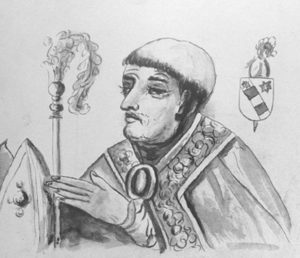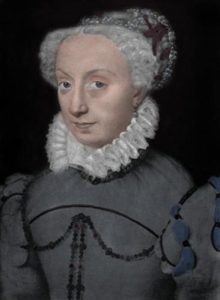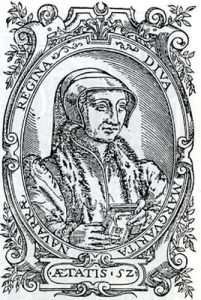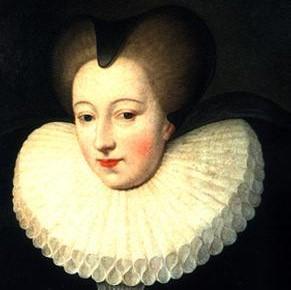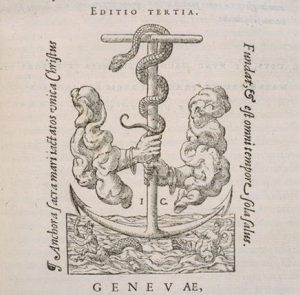Biography
Her date of birth was around 1495 – she was born into a relatively well-off family of nobility in Tournai, Flanders; between1521 and 1524 she was prioress of the Augustinian nunnery in Saint Nicolas des Prés in Tournai.
She converted to the Lutheran Reformation around 1524, so she had to leave her convent and flee to Strasbourg, where she married Simon Robert, a former priest and member of the “Cenacle of Meaux. They first settled in Bex and later in Aigle, in Switzerland (1528) where Simon Robert was appointed pastor – he remained there until his death in 1533. Marie Dentière later married Antoine Froment, from the Dauphiné; in 1535 she went to join him in Geneva, where she later died in 1561.
Women theologians such as Marie Dentière were even rarer in Calvinism than in Lutheranism.
Her written work
L’abécédaire ou grammaire élémentaire en français (An elementary French grammar) This was the first grammar to appear in French – previous school books of this kind had been in Latin.
La guerre et deslivrance de la ville de Genesve (1536) (The war and deliverance of the city of Geneva) (1536). This is an historical work and is considered to be the first of its kind to be printed in Geneva since the city had adhered to the Reformation.
In the thirty years preceding the establishment of the Reformation in Geneva in 1536, when there was much opposition to the rule of the Duke of Savoy. William Farel’s arrival in the city led to violent theological discussions. Despite all this the city finally adopted the Protestant Reformation. Marie Dentièrepresented this period from a profoundly optimistic standpoint, which did not meet with universal approval.
L’Epistre très utile (Very useful letter) was addressed to the Queen of Navarre. It was a religious treaty published in 1539 expressing a doctrine which was heavily influenced by the theology of the protestant group established in Meaux.
It was based on the affirmation of universal priesthood and the idea that the Bible was the only foundation for true theology. In addition, Marie Dentière defends the belief that holy communion is purely a commemoration.
This work was considered to be deeply feminist as it defended the rights of women to take an active part in the Church.
She called for men and women to be treated equally in their interpretation of the scripture, with the Bible as their only valid reference; this was contrary to the restrictive traditions held within the Catholic Church.
Marie Dentière was said to have also written the preface to a sermon by Calvin on women’s dress, published in 1561.

